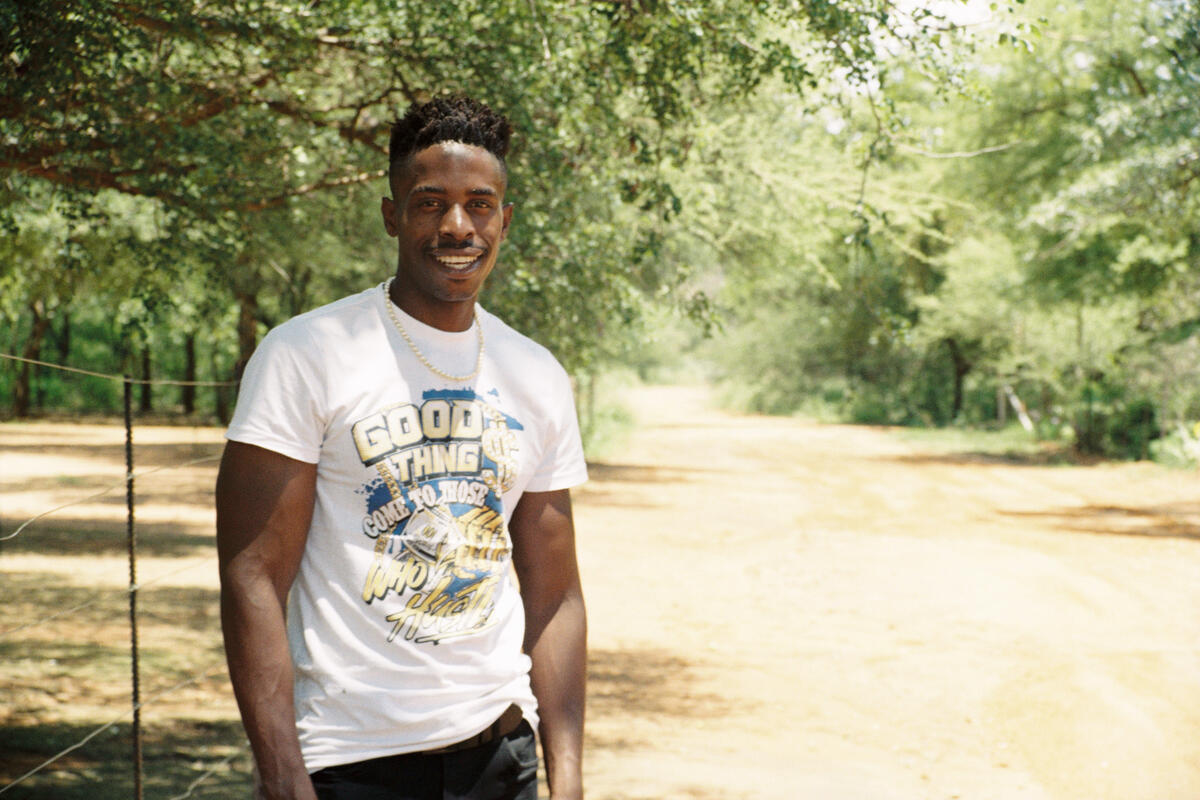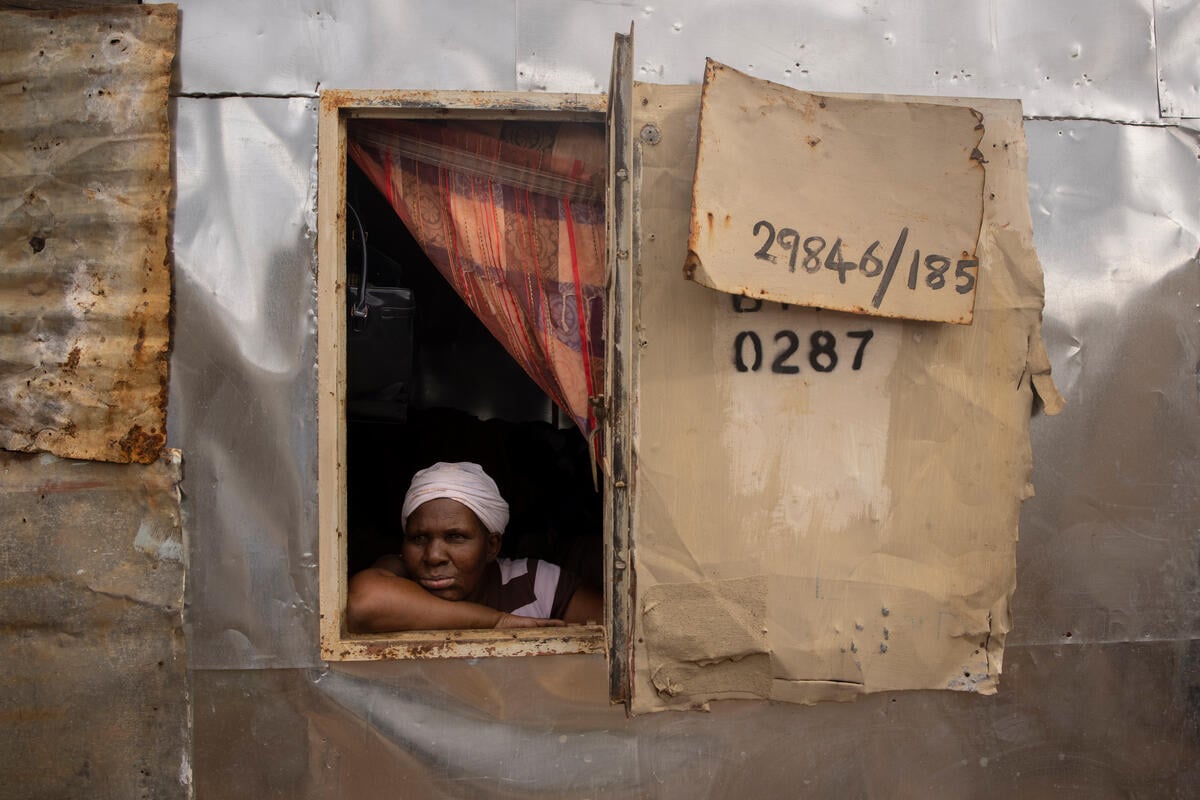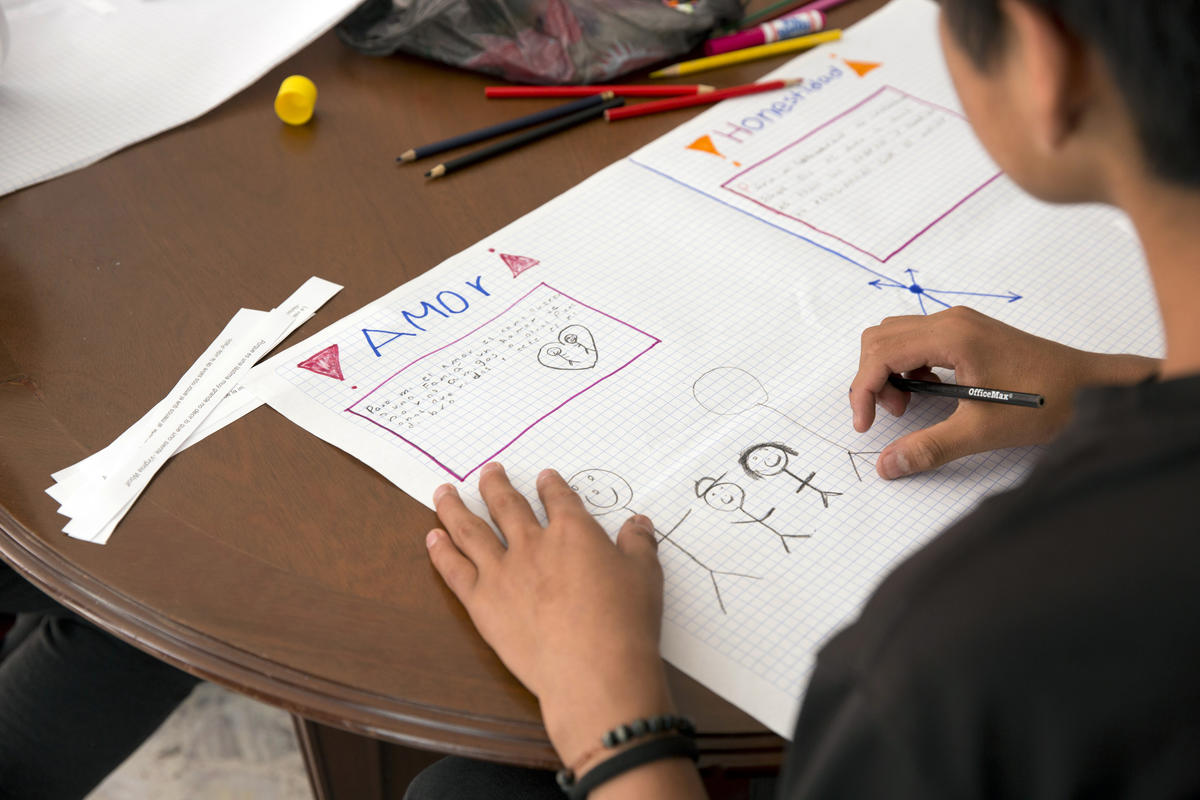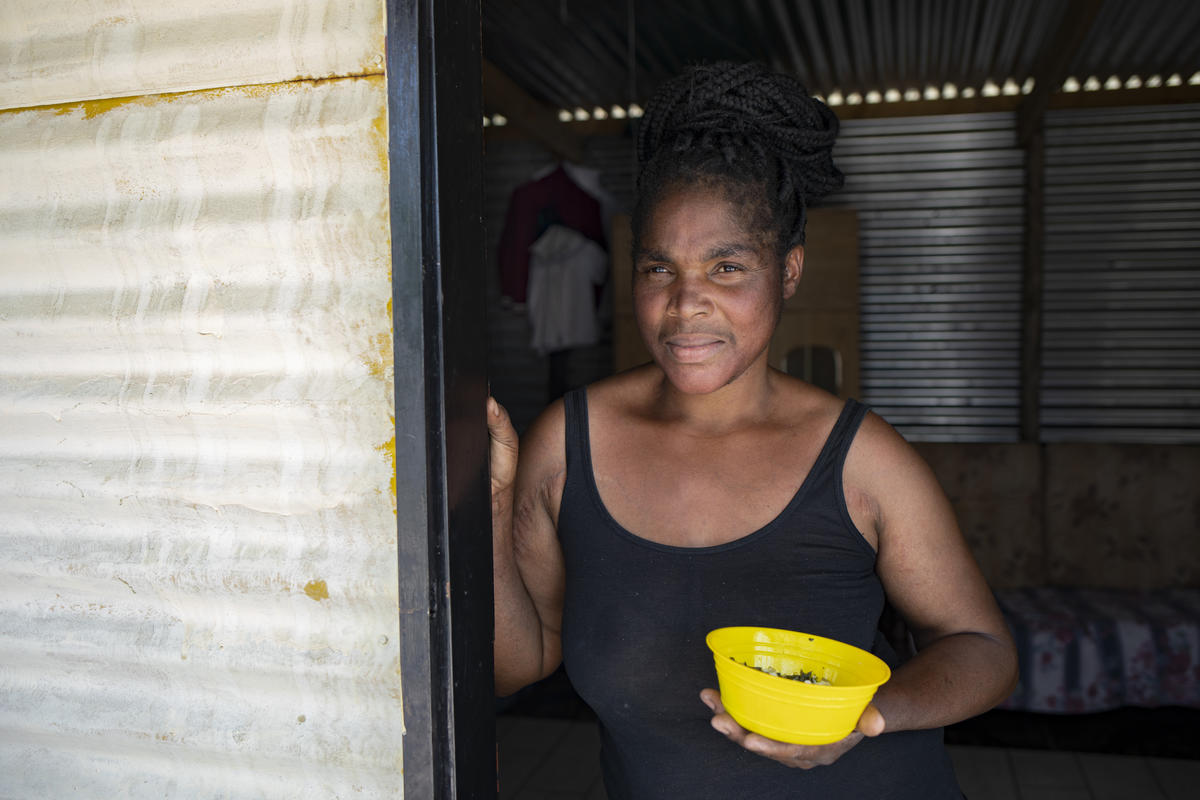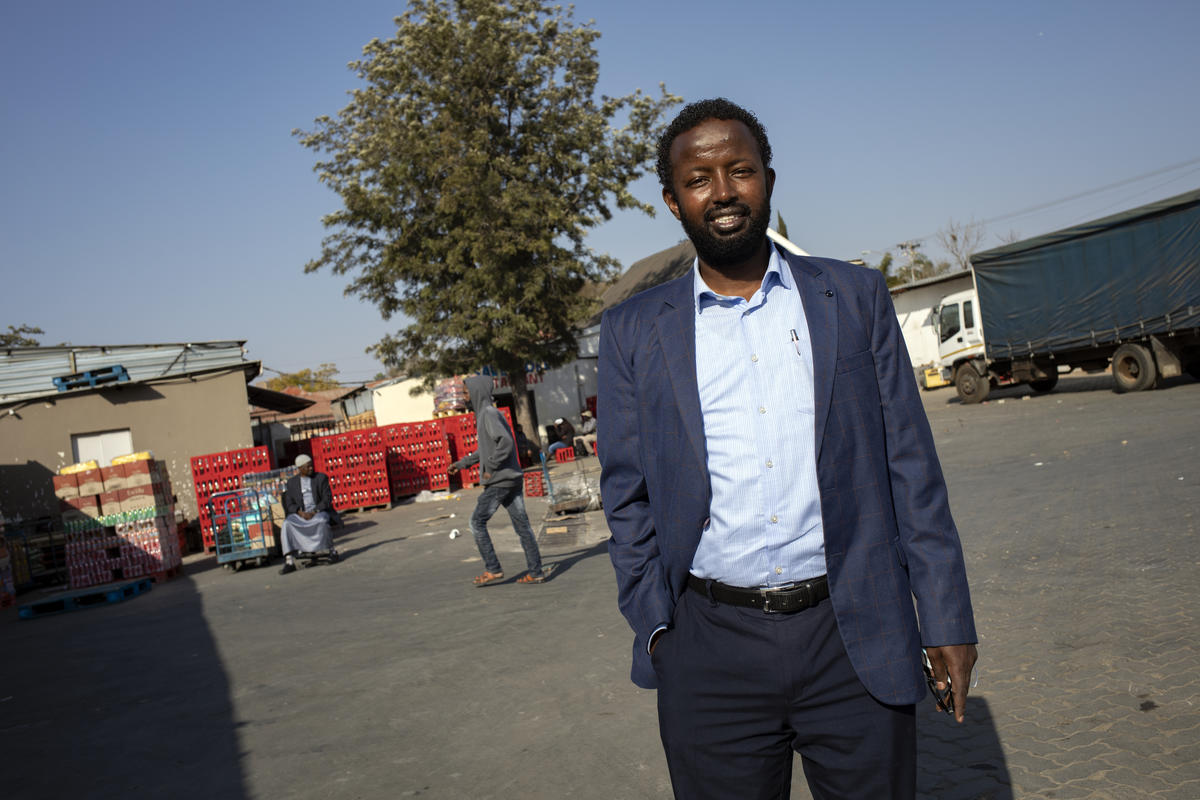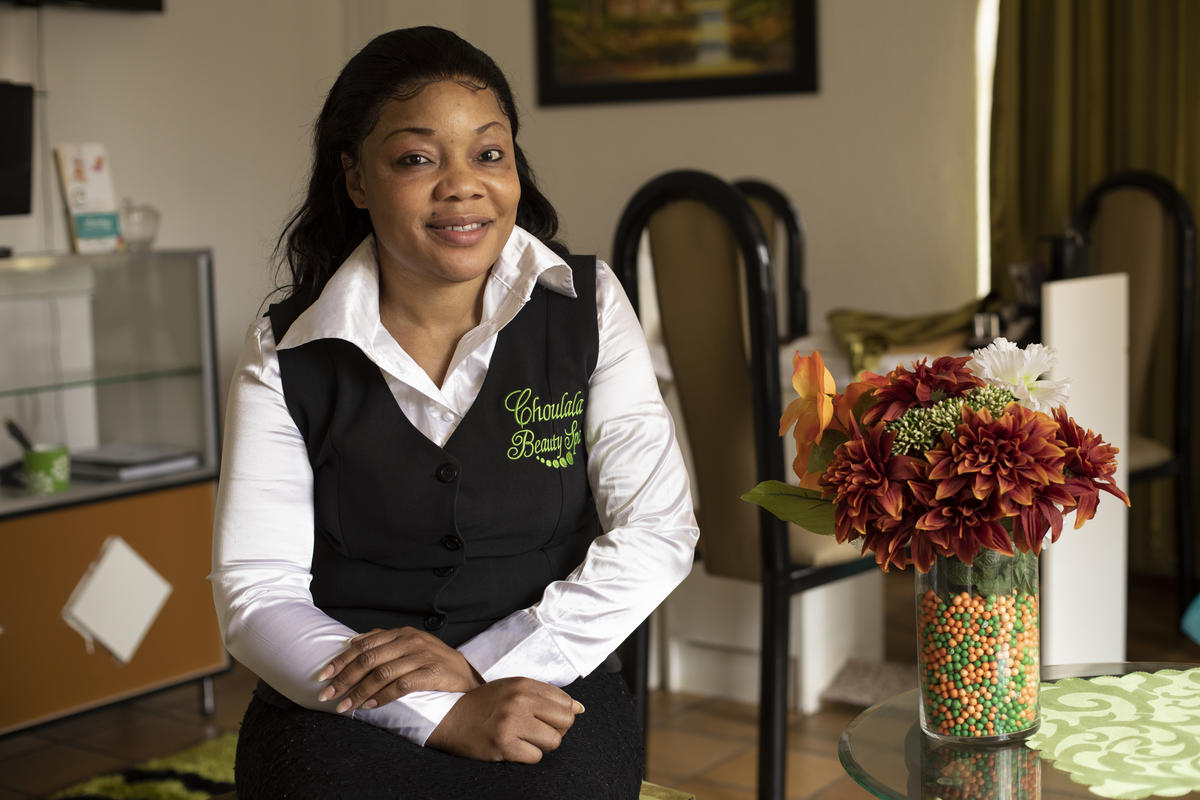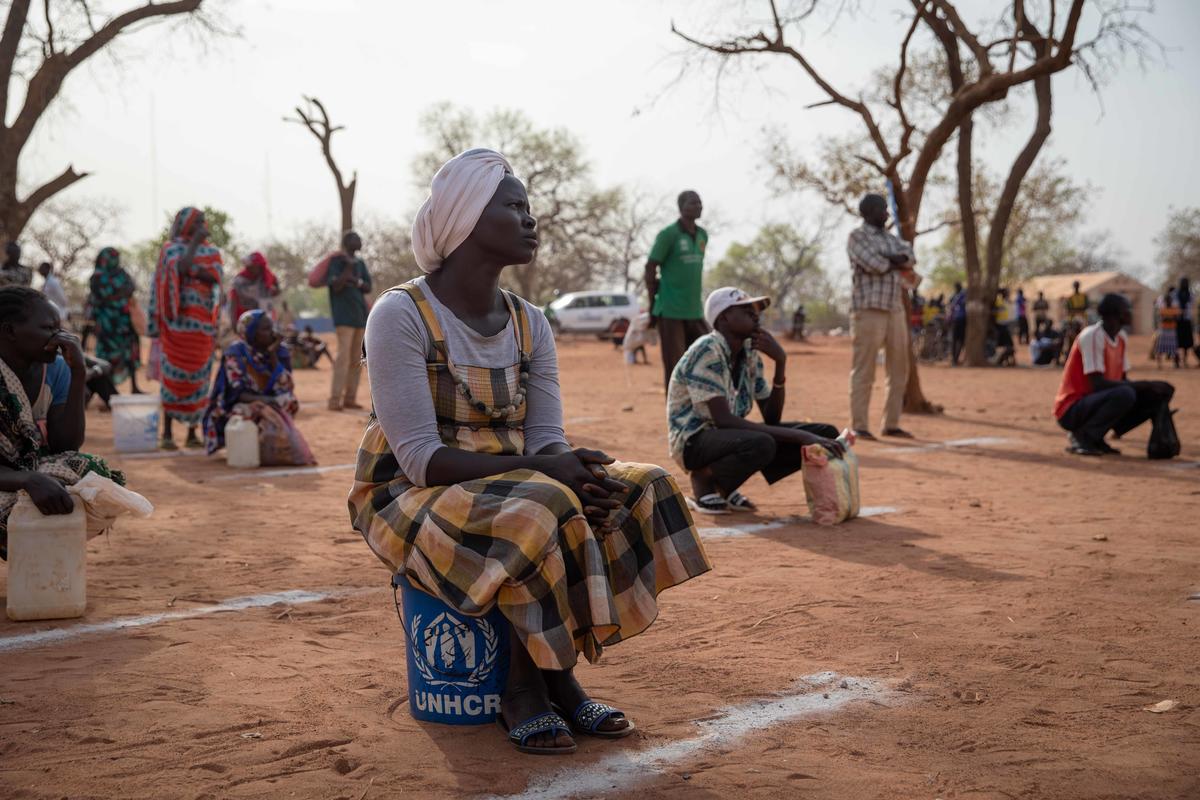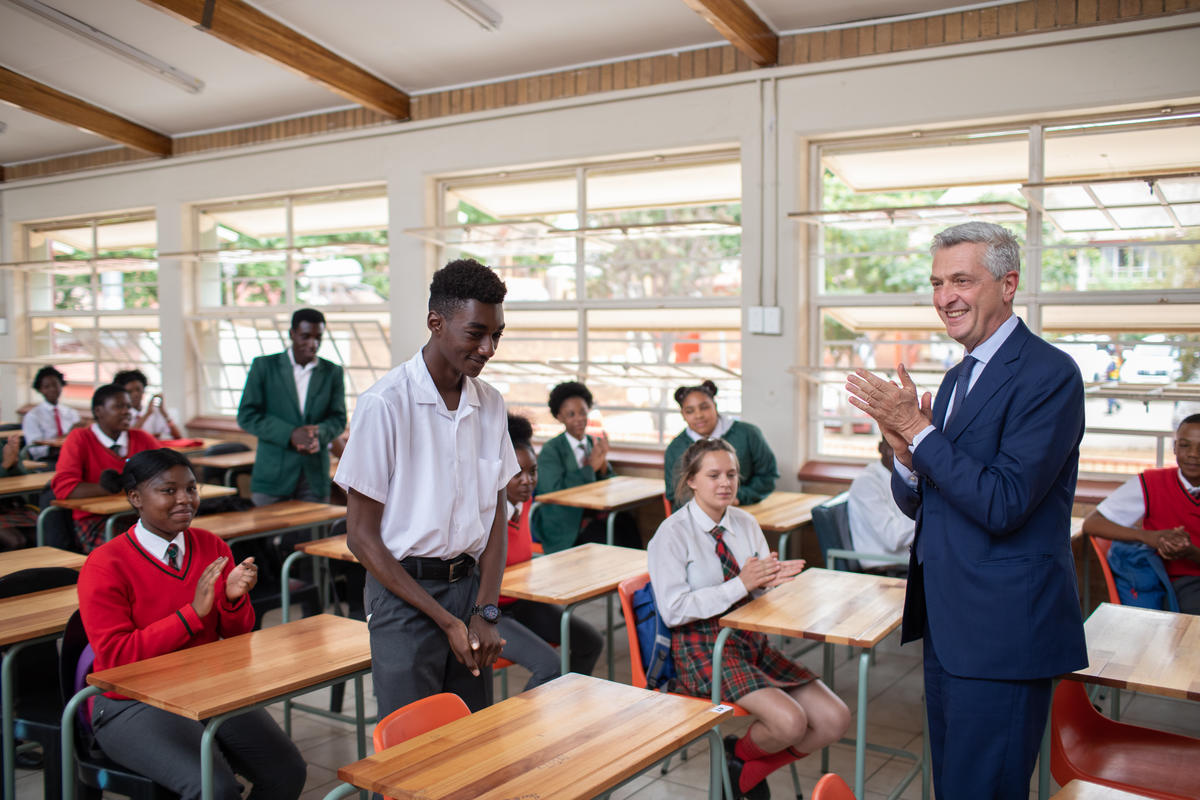Refugees in South African city tell UNHCR they need help
Refugees in South African city tell UNHCR they need help
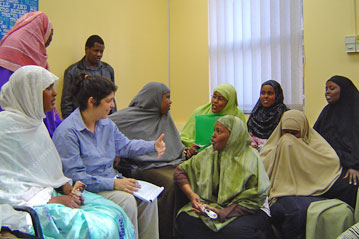
PORT ELIZABETH, South Africa, November 7 (UNHCR) - For several years Port Elizabeth hosted hundreds of refugees without apparent difficulty; refugees largely went about their business, creating self-sustaining employment and living productive lives. They seemed to have integrated well, without the support that the UN refugee agency and its partners have provided to refugees in Johannesburg, Pretoria, Durban and Cape Town.
That image of the city on South Africa's east coast has steadily deteriorated - problems that were brought home to UNHCR in the past month when refugees discussing their situation, during a UNHCR assessment process entitled "Age, Gender and Diversity Mainstreaming" (AGDM), called for the UN refugee agency to find a way to assist them.
The first crack in the facade appeared with a 2001 attack on Somali refugee traders in the town of Uitenhage, just outside Port Elizabeth. After intervention by UNHCR and the city fathers, refugees were assured of the continued services of the Department of Home Affairs, which handles asylum requests, as well as Lawyers for Human Rights (LHR), which was then UNHCR's legal implementing partner in Port Elizabeth.
However, beginning in 2006 the cracks widened. There were increasing attacks and last February more than 20 Somali stores were looted in the Port Elizabeth township of Motherwell, shattering the illusion once and for all.
Refugees faced forced evictions, vandalism and looting of property by community members, who were buoyed by growing intolerance in an apparent effort to rid the area of refugees. The violence caused the injury or death of several Somali refugees.
The problem was compounded by the closure of the LHR office in April this year. "Where must we go for help?," the refugees repeatedly asked.
"It was definitely the Motherwell incident which opened our eyes to the lack of support refugees were receiving in this province," says Monique Ekoko, a UNHCR protection officer based in Pretoria. "When we came here in response to this situation a few months ago, we experienced the intensity of the problem, the challenges facing refugees, and we realised that we didn't have any kind of direct intervention by way of implementing partners."
The AGDM exercise rolled out globally by UNHCR in 2006, and currently under way in South Africa, revealed the magnitude of refugee problems in Port Elizabeth. The annual process involves systematic meetings where refugees get a chance to discuss their problems with UNHCR.
The exercise exposed a litany of protection risks faced by refugees, key of which is the lack of access to documentation. This is a major obstacle to the integration of refugees because of the knock-on effect that a lack of documentation has on securing employment, the provision of livelihoods, shelter and education - everything required to live with dignity.
"It's a good thing that we have come to do this assessment now because it has further highlighted the need for UNHCR to have proper implementing partners here," says Ekoko who lead the multi-functional team conducting the assessment. "There are definite socio-legal issues that need to be addressed. We have, for example, through a group discussion with newly arrived Somali women learnt that they are deliberately keeping their children of school-going age at home."
A young Somali mother, her brood of four gathered around her, explained to the UNHCR team why this was happening: "That is because South Africans are xenophobic and we are scared."
The lack of a UNHCR partner in Port Elizabeth makes it difficult to either investigate or to follow up such a situation, says Ekoko. The search has begun for a socio-legal implementing partner for UNHCR who can provide the vital services as quickly as possible.
"Most of the solutions proposed by the institutions we spoke to - such as the South African Human Rights Commission, the refugee communities themselves and the police - all said that there was a need to have refugee issues dealt with from a central point within the city and province and with which they could also interact," Ekoko notes.
UNHCR found a willingness to assist refugees in talks with the Nelson Mandela Metropolitan University law clinic, the independent Black Sash human rights group and the South African Red Cross. But Ekoko is mindful of the challenges to quickly finding the right partner for a specialized field.
While the search for a partner in Port Elizabeth continues, UNHCR is pleased that the AGDM process has demonstrated its intended worth - providing the opportunity for refugees themselves to guide the UN refugee agency by identifying the areas needing action.
"With this assessment we have been able to get a good grasp of serious issues, which we are now better placed to make informed decisions on. I believe that under the circumstances this is where we should give priority and channel our resources," says Ekoko, who hopes UNHCR will have an implementing partner in place by early next year at the latest.
By Pumla Rulashe in Port Elizabeth, South Africa

